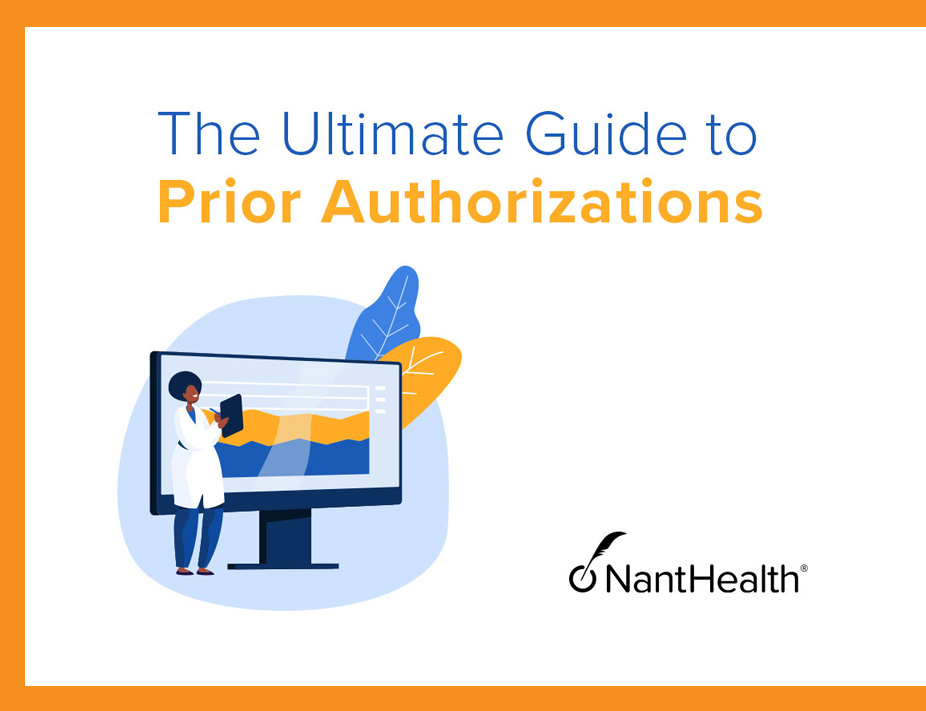New Legislation Seeks to Improve Access to Care for Seniors Using Medicare Advantage Plans
Could a bill passed in the House and now in the Senate improve the efficiency and transparency of prior authorization in Medicare Advantage plans by establishing an electronic prior authorization program?
That appears to be the case as bill H.R. 8487 – called the Improving Seniors’ Timely Access to Care Act of 2022 – unanimously passed the House in September and has strong support in the Senate.
The bill was one of several topics discussed by AHIP Senior Vice President of State Affairs & Policy at the California Association of Health Plans (CAHP) annual conference, which was attended by Sales and Marketing staff members of NantHealth on October 17 – 19.
The proposed bill requires physicians to obtain pre-approval for medical treatment or tests prior to rendering care associated with a Medicare Advantage plan, which is a special program offered to seniors. According to the backers of the bill, the legislation seeks to reduce the need for lengthy back-and-forth inquiries between providers (physicians, hospitals, etc.) and health insurance companies which have been known to delay patient care.
Nationally, about 28 million seniors belong to Medicare Advantage plans offered by health insurance companies and non-profit organizations.
Physician Surveys Show the Impact of Prior Authorization Delays in Patient Care
For example, according to a recent survey by the American Medical Association of physicians, 93% report that prior authorizations cause delays in patient care and 82% said that the process leads some patients to abandon treatment altogether. Supporters of the bill say these delays have compounded because of the effects COVID-19 has had on medical staffs.
One in four physicians also have reported that prior authorization has led to a patient being hospitalized and doctors say they spend an average of 13 hours per week completing prior authorization paperwork.
What is Prior Authorization?
Prior authorization is a requirement that a provider (such as a physician or hospital) must obtain approval from a health insurance plan before prescribing a specific medication or performing a particular medical procedure that is not covered by the plan. This determines whether or not a procedure or drug will be paid in full or in part. There are several reasons why prior authorizations are used by health plans. They include:
- Ensuring a procedure is medically necessary
- Ensuring that a service or prescribed drug follows up-to-date recommendations for the medical problem suggested
- Ensuring that the procedure or drug is the most economical treatment option available
- Ensure that the treatment isn’t being duplicated
- Ensuring that an ongoing or recurring treatment is providing continued benefit
Electronic Prior Authorization is the electronic transmission of information between the provider and payer to determine whether or not the prior authorization is given.
Multiple Components of the Electronic Prior Authorization Bill
The bill has several components designed to protect patients from unnecessary prior authorization practices that limit their timely access to medically necessary care. If enacted in law, the Act would:
- Establish an electronic prior authorization process
- Ensure prior authorization requests are reviewed by qualified personnel
- Require plans to report on the extent of their use of prior authorization and the rate of delays and denials
- Require the U.S. Department of Health & Human Services (HHS) to establish a process for “real-time decisions” for items and services that are routinely approved.
- Ensure that plans adhere to evidence-based guidelines
Strong Support for Electronic Prior Authorization Legislation
More than 500 organizations have endorsed the legislation, which was co-sponsored by two Democrats and two Republicans in the House.
“At a time when group practices face unprecedented workforce shortage challenges, 89% of MGMA members report they do not have adequate staff to process the increasing number of prior authorizations from health insurers,” the Management Group Medical Association (MGMA) said in a statement.
The American Medical Association also supports the proposed legislation, saying: “The additional sections of the legislation mandating MA plans to issue faster prior authorization decisions are crucial policy improvements that will ensure more timely access to care and, as a result, improved patient health care outcomes and better stewardship of scarce Medicare resources.”
NantHealth’s NaviNet Open technology platform enables real-time exchange of HIPAA-compliant medical prior-authorization, submission requests, and inquiries between health plans and providers. In addition, Eviti Connect, NantHealth’s evidence-based treatment validation platform, reduces the administrative time involved in obtaining and providing authorizations surrounding oncology and autoimmune disorders.








